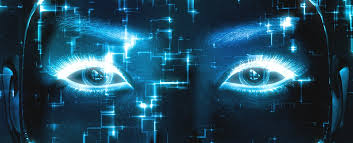
Breaking News
 BREAKING: Federal Agents Descend on Suspected Somali Fraud Sites in Minneapolis (VIDEO)
BREAKING: Federal Agents Descend on Suspected Somali Fraud Sites in Minneapolis (VIDEO)
 BREAKING: Federal Agents Descend on Suspected Somali Fraud Sites in Minneapolis (VIDEO)
BREAKING: Federal Agents Descend on Suspected Somali Fraud Sites in Minneapolis (VIDEO)
 Aargh! Letters of marque would unleash Blackbeard on the cartels
Aargh! Letters of marque would unleash Blackbeard on the cartels
 How a Barter System Could Sustain Communities During a Supply Chain Collapse
How a Barter System Could Sustain Communities During a Supply Chain Collapse
Top Tech News
 EngineAI T800: Born to Disrupt! #EngineAI #robotics #newtechnology #newproduct
EngineAI T800: Born to Disrupt! #EngineAI #robotics #newtechnology #newproduct
 This Silicon Anode Breakthrough Could Mark A Turning Point For EV Batteries [Update]
This Silicon Anode Breakthrough Could Mark A Turning Point For EV Batteries [Update]
 Travel gadget promises to dry and iron your clothes – totally hands-free
Travel gadget promises to dry and iron your clothes – totally hands-free
 Perfect Aircrete, Kitchen Ingredients.
Perfect Aircrete, Kitchen Ingredients.
 Futuristic pixel-raising display lets you feel what's onscreen
Futuristic pixel-raising display lets you feel what's onscreen
 Cutting-Edge Facility Generates Pure Water and Hydrogen Fuel from Seawater for Mere Pennies
Cutting-Edge Facility Generates Pure Water and Hydrogen Fuel from Seawater for Mere Pennies
 This tiny dev board is packed with features for ambitious makers
This tiny dev board is packed with features for ambitious makers
 Scientists Discover Gel to Regrow Tooth Enamel
Scientists Discover Gel to Regrow Tooth Enamel
 Vitamin C and Dandelion Root Killing Cancer Cells -- as Former CDC Director Calls for COVID-19...
Vitamin C and Dandelion Root Killing Cancer Cells -- as Former CDC Director Calls for COVID-19...
 Galactic Brain: US firm plans space-based data centers, power grid to challenge China
Galactic Brain: US firm plans space-based data centers, power grid to challenge China
Phosphorous atoms could serve as biochemical qubits for quantum computing in the human brain

Fisher asserts that nuclear spins (at the core of the atom, rather than the surrounding electrons) could provide quantum computing in the human brain.
"Extremely well-isolated nuclear spins can store — and perhaps process — quantum information on human time scales of hours or longer," he said. Fisher posits that phosphorus atoms — one of the most abundant elements in the body — have the requisite nuclear spin that could serve as a biochemical qubit. One of the experimental thrusts of the collaboration will be to monitor the quantum properties of phosphorus atoms, particularly entanglement between two phosphorus nuclear spins when bonded together in a molecule undergoing biochemical processes.
Helgeson and Alexej Jerschow, a professor of chemistry at New York University, will investigate the dynamics and nuclear spin of Posner molecules — spherically shaped calcium phosphate nano-clusters — and whether they have the ability to protect the nuclear spins of the phosphorus atom qubits, which could promote the storage of quantum information. They will also explore the potential for non-local quantum information processing that could be enabled by pair-binding and disassociation of Posner molecules.



